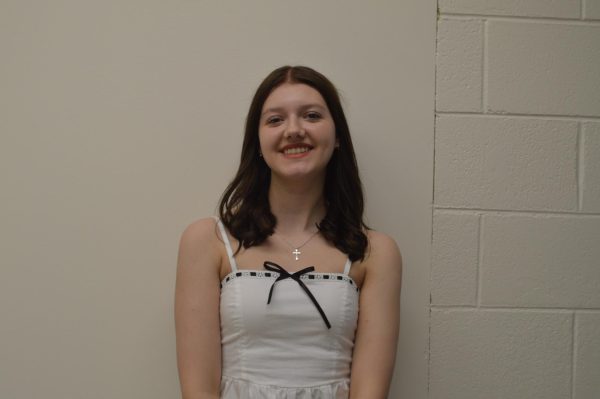Ghostbusters: Frozen Empire attempts to reignite the franchise’s flame. In this bland sequel, the family of deceased Egon Spengler, alongside the original crew, find themselves trapped in a frosty adventure when an ancient artifact unleashes an evil force. Instead of delivering the spine-tingling thrills and unexpected twists that made the original 1984 film, Ghostbusters: Frozen Empire feels more like a forgettable addition to a family movie night lineup.
The family from Ghostbusters: Afterlife, the 2021 reboot to which Frozen Empire is the sequel, all reprise their roles in the sequel. The setting takes place in the New York City refurbished firehouse where the three original Ghostbusters started the business. Callie Spengler (Carrie Coon), her sarcastic son Trevor (Finn Wolfhard), genius daughter Phoebe (Mckenna Grace) and Mom’s boyfriend Gary (Paul Rudd) are continuing on the ghostbusting legacy of Grandpa Egon (Harold Ramis). They continue to work closely with Ray Stantz (Dan Aykroyd), who owns a paranormal notions shop, where he lends his extraordinary flair and wit to the ghostly adventure.
Subsequent sequels of the iconic original Ghostbusters have struggled to rekindle its magic. The reanimation of the Ghosterbusters’ firehouse aims to recapture the original movie’s charm. Instead, it highlights the film’s inability to create its own identity. Despite the return of beloved characters from the original 1984 movie, Frozen Empire falls short of balancing its movie elements while attempting to recreate the 1984 moments. It also serves as a reminder of the franchise’s inability to move beyond its past glory. Despite the story’s efforts to recapture the charm of the original, Frozen Empire feels like a pale imitation, relying too heavily on familiar elements rather than building new ground.
The nostalgia that the sequel brought by bringing in franchise fan favorites such as Slimer and the Stay Puft Marshmallow Man showcased the film’s reliance on these elements. There wasn’t any particular reason for these ghosts in the main storyline other than to give viewers that nostalgic feel. Cameos made by several familiar favorites in the 1984 film often felt forced and a little awkward at times. Annie Potts playing the role of Janine Melnitz, who was the receptionist in the original, was featured as a part of the Ghostbusting squad. It was obvious her character didn’t seem to fit in anywhere in the film, so they added her to the team to which her character felt wedged in.
The dialogue often falls flat and the comedic timing, a distinctive characteristic of the franchise, is noticeably absent. Not even the usually reliable Paul Rudd can recover the film’s attempts at humor with his one-liners. Fan favorite Bill Murray appears and exits scenes without much reason. His random appearances, along with other characters’ varying screen times, allowed for a disconnected narrative, leaving many character arcs feeling rushed and underdeveloped. However, Mckenna Grace as Phoebe offers some hope in her subplot involving an unexpected friendship. Themes of self-discovery and identity are introduced through her relationship with the teenage ghost Melody (Emily Alyn Lind). If the film were to focus more on character development and less on presentation and spectacle, this unexplored friendship could have added a layer of depth and creativity to the story.
Moreover, Ghostbusters: Frozen Empire struggles to justify its theatrical release, as its lack of execution and absence of cinematic elements make it feel more suited for a streaming service debut. With its uninspired direction, the film fails to capture the immersive experience that movie theaters can offer. Instead of utilizing the big screen to create a sense of awe and excitement, Frozen Empire often feels like a made-for-TV movie, lacking the qualities that audiences expect from a theatrical release.
Overall, Ghostbusters: Frozen Empire fails to recapture the magic of the original film, instead serving as a forgettable addition to the franchise. While it may satisfy die-hard fans with its callbacks and references, it ultimately falls short of delivering the feel-good factor and wit of the original that made the Ghostbusters’ universe so beloved in the first place.




